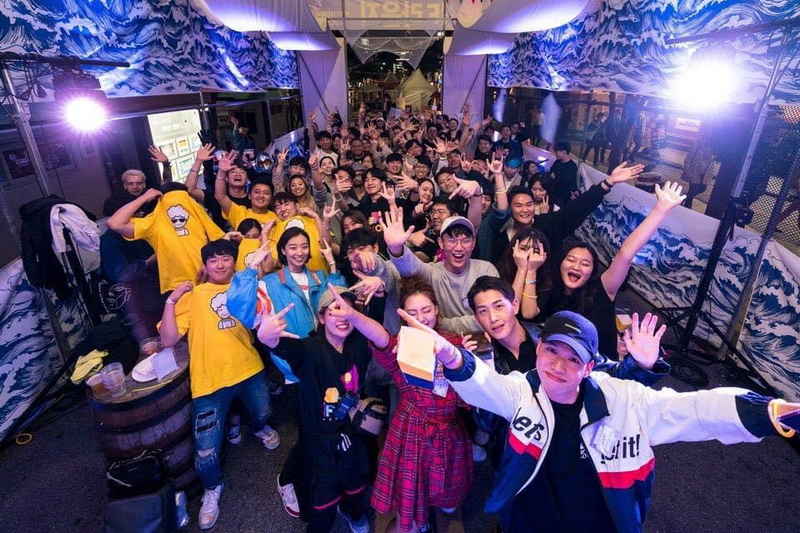Diving into Deep Ocean
Interview by Melline Galani
House music is an influential genre of dance music that has become a global phenomenon and changed clubbing forever. It has been keeping people dancing for decades, spawned subcultures, influenced technology, united people, and propelled music innovation.
Our beloved City of Light is the host of one underground subculture hotspot called Deep Ocean (Simhae, 심해). Run by young enthusiasts who transformed their hobbies and passions into a lifestyle, the place is a must-see for music lovers of this genre. It is the place you have been searching for! I was in awe when I discovered it, not knowing that Gwangju had such a precious hidden gem.
The interview below with the main founding members of Deep Ocean presents a different perspective on how passion for music can lead to a business and lifestyle. They are an inspiration for the young generation; interesting, joyful individuals that I got to know through the space they created for us – the Deep Ocean.
Melline Galani (MG): Hello and thank you for taking time to do this interview. Please introduce yourselves to Gwangju News readers.
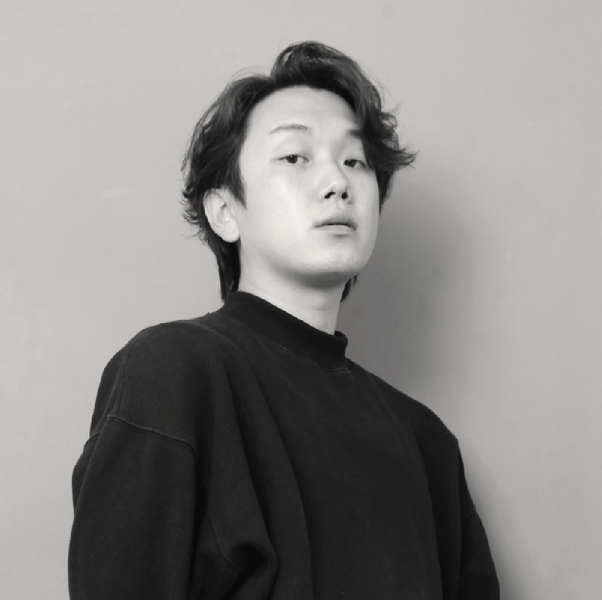
MORO: Hello. I grew up in Gwangju, but I lived abroad for a while. Therefore, you may call me MORO (머로).
DADA: Hi. Call me Dada (다다). Originally from Gwangju, I majored in visual design, and now I am studying while doing work related to culture, arts, and community.
GGAX2: Hello. My name is Gado-gyun (가도균). I am from Icheon, Gyeonggi-do, and I have been living in Gwangju for four years. I work as a stage director at the Asia Culture Center’s Arts Theater and oversee the cultural community of Deep Ocean.
(*They are the brains, hearts, and spirits behind the Deep Ocean phenomenon.)
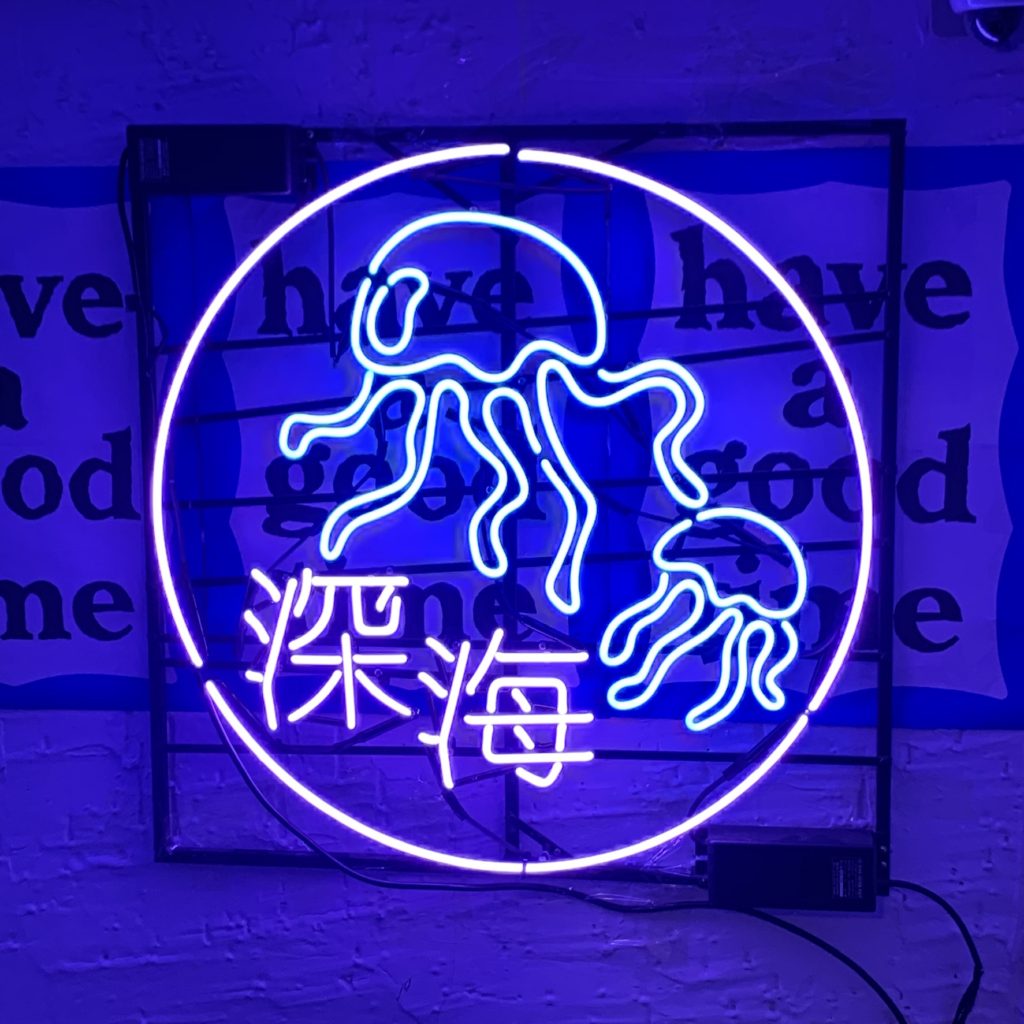
MG: Could you tell me how and when your passion for music started?
MORO: When I was in middle school, I learned how to play drums and became passionate about music from the time I was in the school band. Though I am not a professional musician, I am happily living a life close to music even now.
DADA: I grew up listening to a lot of band music. I was shocked to see people playing at the Busan Rock Festival, which I happened to visit when I was 18 years old. Since then, beside only listening, I became interested in rave festivals and clubs with DJs.
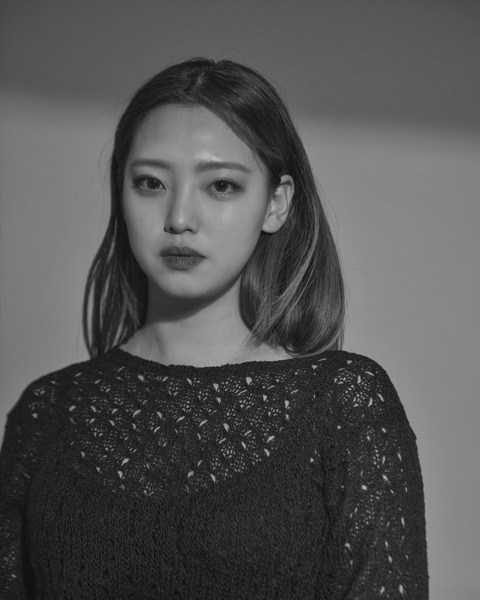
GGAX2: I have been interested in hip-hop music since I was fifteen. I would write the lyrics and recorded them. I was really impressed when I saw a performance by the band Oasis. I knew their music, but seeing so many people focusing on one stage performance in a large arena was a life-changing event for me.
MG: Are there any specific genres that you find yourself connected to or that you are attracted to when you listen to music?
MORO: I especially like percussion sounds, cheerful, bright sounds, and house music.
DADA: I like sounds with a middle-tone melody like piano sounds, and I like repetitive sounds. I mostly listen to music such as house, soulful house, and disco, but when I play, I love repetitive, fast-tempo, intense rhythmic songs such as acid house, break beat, and UK garage.
GGAX2: Techno, progressive house, break beats, and trance are the most attractive. I think the melody is the most important. It should have the basic speed and power of dance music, but the melody makes you feel ecstatic.
MG: When did you start DJing and how would you describe your own development as artists?
MORO: I first started DJing in 2018. I played so many genres confusingly at the beginning, but as the years went by, I was able to play fairly stable stuf, and now the music that I am digging and playing has its colors.
DADA: I started DJing five years ago. It is fun to reconstruct existing songs with materials to suit my taste, and when I listen other DJs playing, I try to understand as much as possible what the DJs’ intentions were in preparing the set. My progress as an artist has taught me how to respect others. It is not about being right or wrong but about respecting each other’s differences and enjoying ourselves in any situation.
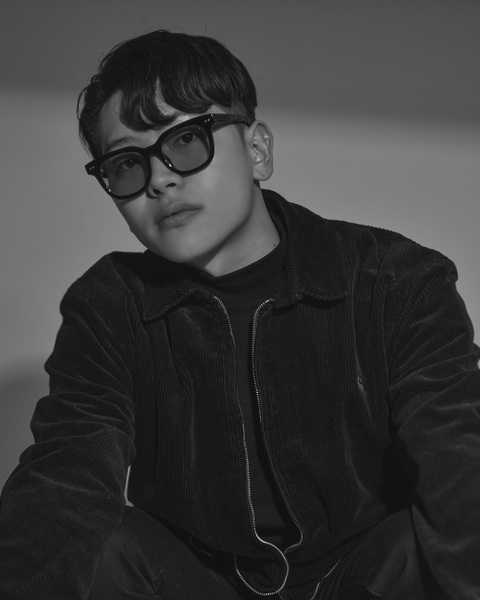
GGAX2: I attended a music hagwon when I was in Seoul in October 2016. I liked trap and hard bass, and after preparing thousands of songs to practice, my academy teacher told me after one month that I should stop attending, so I bought equipment and stopped going there. What I regret a little is that I should have learned more about DJ skills. I started with trap and hard bass, but I wanted to do various genres of mixing. At that time, I first found out about harmonic mixing on the homepage of DJ Bagage (@bagageeviphex13) and realized that DJing was not just about connecting music. From then on, I fell in love with harmonic mixing. The more techno and house melody flows are mixed, the more important the harmonic mixing is, so I studied various mixing methods on YouTube and practiced them. I want to keep improving.
MG: What were some of the main challenges and goals when starting out as a DJ, and how have they changed over time?
MORO: It was both a challenge and a goal to show my favorite music to the public and share my taste. Even now, that part is still the same, but I select and play my music depending on the place and atmosphere.
DADA: I started learning it as a hobby, but with the opening of the space called Deep Ocean Gwangju downtown, people started to come to listen every week, so I have taken a much more serious attitude towards DJing. I am also interested in studying how to incorporate the field of DJing in the arts.
GGAX2: “Let’s mix my favorite songs to make a one-hour mix set and upload it to Soundcloud!”1 was my first goal, and now I have made about five mix sets. Right now, I am taking lessons to make music, and next goal is to make a performance with my songs.
MG: Art can be a purpose, but it can also be linked to everyday life, take on a social and political role, and lead to more engagement. Can you describe your approach to art and being an artist?
MORO In the past, the purpose was simply sharing our hobbies, but now, as representatives of the genre in Gwangju, we are thinking about artistic approaches that only we can do.
DADA: For me, why you do it is important. The reason why is the message, and whether the message is light or heavy, art serves as a medium. The message could be one sentence, in my case, a story about “self” to reveal who I am. It is a continuous process of thinking about who I am and what I want to show, and I consider that if I express this in various ways, I could become an artist.
GGAX2: I think the approach to art should be both easy and deep. Sometimes, I close my eyes and draw, write, play an instrument, or express the things in my unconscious mind in a simple, natural way. Since social and political roles have a clear purpose, there is a way to essentially look at them and elicit a sense of the problem within them. For example, we can approach problems by substituting historical aspects, as in “techno culture has the meaning of rebellion and uprising in Germany,” to our current situation. The constant questioning seems to be important.
MG: How did you come up with the idea of opening a business here? What are the biggest challenges of owning and running your own business?
MORO: As we were all working together, somehow everything came together naturally up to the creation of the underground club we share with so many people now. Before the space was created, we used to hold irregular parties in various places, but it took too much energy to organize them. We started thinking about the possibility of having our own simple practice space that we could share with other people like us. That idea has been nurtured into the space it is today. The biggest challenge is money. It is a burden to keep it economically because we do not seek much profitability.
DADA: Originally, the space was located elsewhere. The reason we made Deep Ocean Gwangju in the first place was because there was music we liked, and there were no clubs in Gwangju where that music was played. So, we made it for us and our friends to play music and have fun together, but we felt it was a pity that we were the only ones to enjoy it all; therefore, we moved to the present location to share this joy with many people. It was opened when COVID-19 was in full swing, therefore it was difficult to run with all the restrictions and social distancing rules. However, we managed to survive.
GGAX2: First of all, the subculture and the spaces where we could enjoy our favorite music had disappeared. Therefore, we started by saying, “Let’s make a space like that ourselves.” The biggest difficulty is the financial problem. Monthly rent and utility bills are a burden. Also, the interior design is not that fancy, since we did everything ourselves. I would like to give a small amount to the DJs who play, but the current situation is not easy. I hope that the labor put in will be properly returned to DADA (@dada_hyeeeee), MORO (@moro_from_garden) Young (@66choiyoungwon99), AND Jiae (@4040404_l), who run the place together. This is the saddest thing.
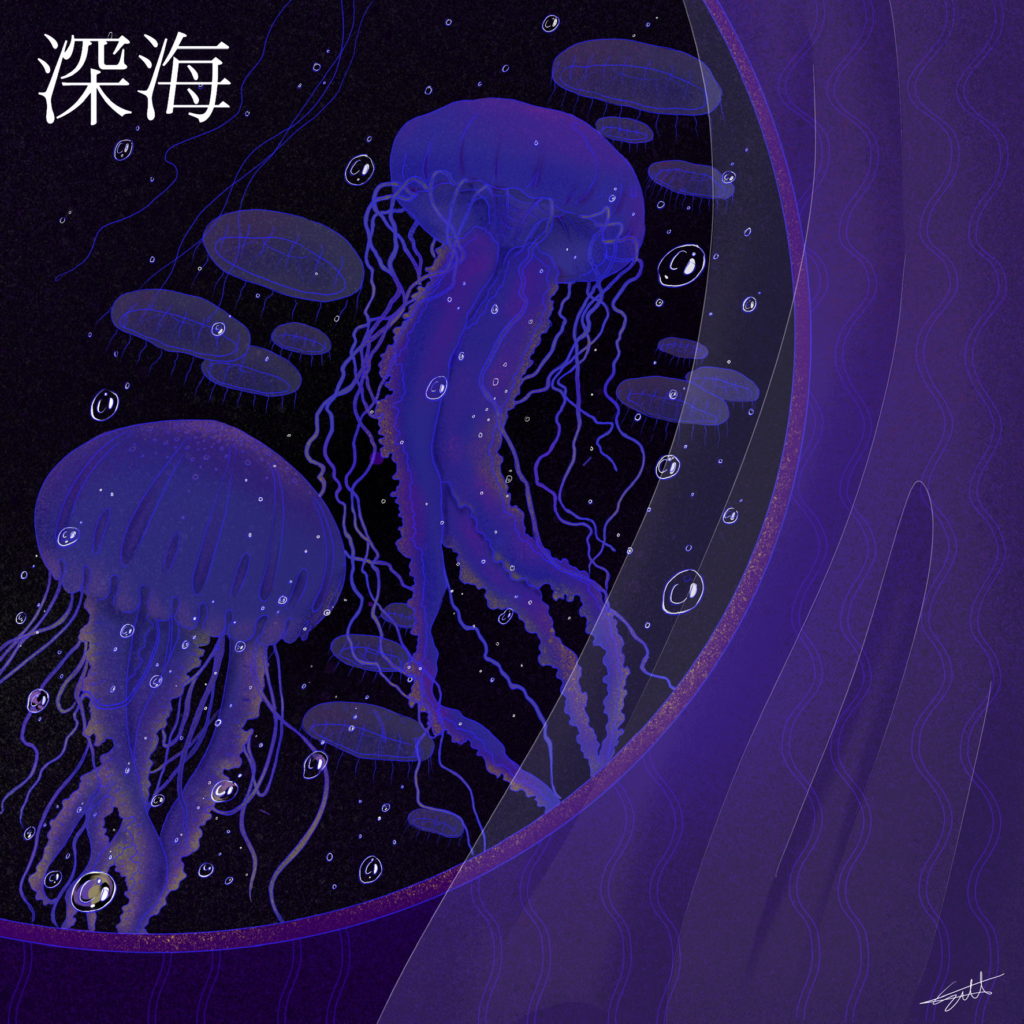
MG: What is the main concept behind Deep Ocean?
MORO: I joined after the name Deep Ocean (심해 or “deep sea”) was chosen, so it may be slightly different from the original meaning, but now our concept is to dance together in the sea of diversity.
DADA: The keyword of Deep Ocean is “underground.” We are aiming for a subgenre, and this world is like a deep sea unknown to many people. Deep down there is freedom and infinity, making anything possible. Those who know this pleasure cannot get away with it anymore! (Actually, the name “Deep Ocean” was chosen when I went on a trip to the beach with the members, and there was an episode where I said, “What if we get drunk and fall into the sea?” and someone said, “Then that’s a bad club.” Then we joked, saying, “Let’s work under the name of ‘bad’ / ‘deep sea.’” (It was a word joke: 심해 can mean both “bad” and “deep sea.”) This was the origin of the name.
GGAX2: The main idea was to create something that did not exist before. Inspiration was mainly influenced by overseas festivals and venues, as well as clubs in Seoul. Of course, club culture and DJing are foreign influences, so we always keep an eye on them. The main concept is a deep-ocean culture that combines blue and red oceans. The integration of mainstream and non-mainstream genres, and our jellyfish logo are our brand marks. We wanted to create a space and content that “swim” in an unknown world.
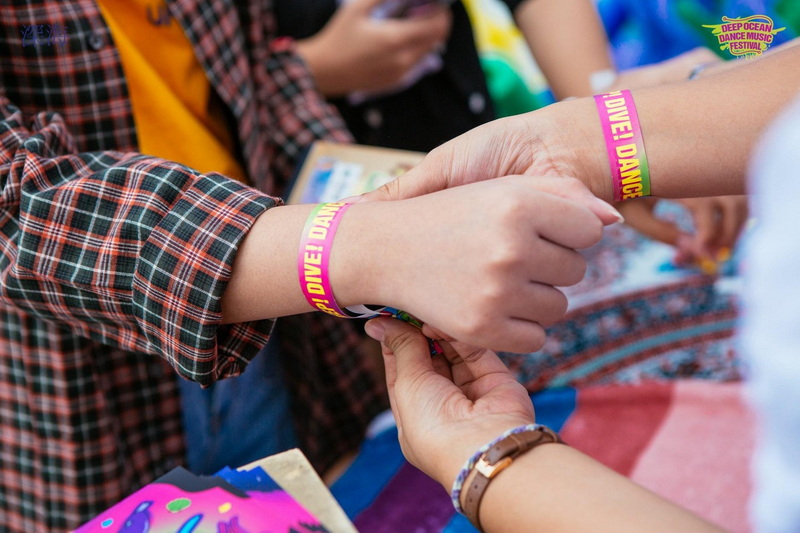
MG: Last year, you went to Seoul for the Seoul Community Radio (SCR) event. Could you please tell me more about the event? What other events have you done in the past?
MORO: SCR is a place where various artists are discovered, and their plays are archived in the form of video / audio clips. The event was a good opportunity for four of our crew members to appear on SCR with plays that showed our own taste in music. Before that, we made various events with our own colors and plans in different places such as traditional markets, cafes, parks, performance halls, and festivals, in addition to making our own dance music festival. If it were not for COVID-19, I think we could have created another festival.
GGAX2: The SCR event was connected by DJ YUZO (@yuzopia), who invited us when we made our “Let Your Freak Flag Fly (LYFFF)” concert. SCR is an online streaming exchange project with subculture crews in Seoul that acts as a cultural community platform of electronic music gods for networks around the world. In Taiwan, I went to Taipei Community Radio to DJ and played and interacted with local clubs. Though Deep Ocean is in Gwangju, there is no limit. I am planning to actively interact with foreign labels and radios in the future.
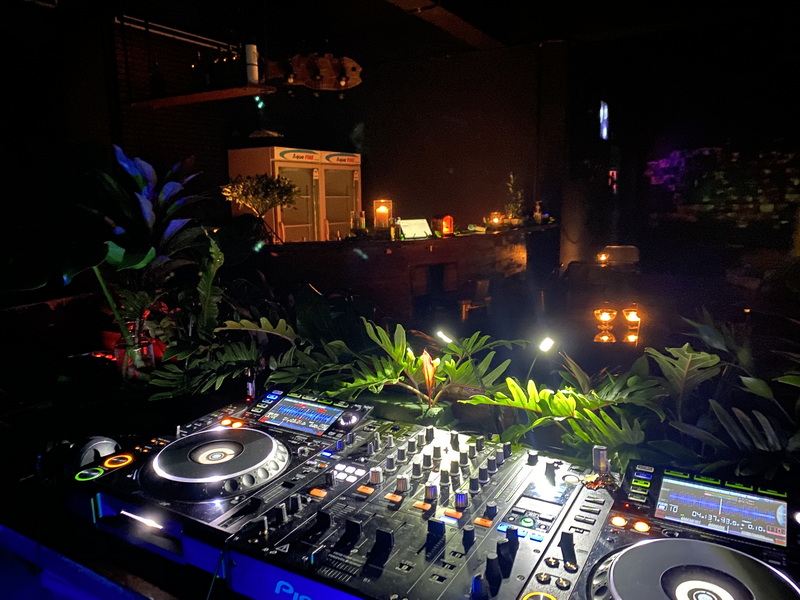
MG: What is your favorite or most rewarding thing about your job? What is the most challenging part?
MORO: In the end, when many people visit, it is a time to enjoy our favorite music together. I think the most difficult part is the maintenance one.
DADA: It is the most enjoyable when people are having fun and dancing together. At such moments, not only the guests but also the DJs are very happy. Thirty years later, when I look back and think, “Oh! It was really fun back then!” I hope I can smile. The most difficult part is probably stamina (because you have to drink while playing).
GGAX2: It makes me so happy to see people who are immersed in a rave with their eyes closed. This kind of music and atmosphere is being absorbed within yourself. Think that one out of ten people are like that. I think there are fewer people who come to listen to music. So, we are also doing our own musical research and analyzing the space, trying to make it more fun and comfortable.
MG: Because of the COVID-19 pandemic, many businesses faced hardships. Please tell us how the pandemic has affected your business.
MORO: We lost a lot of opportunities because of COVID-19. We can best show our charm offline, but I do not think we were able to show it enough, because people were restricted from gathering. I tried online content, but it was difficult due to the lack of realism. In the current situation, if you pursue the same content as us, I think the best response is to endure it.
DADA: There were other places like ours for people to gather and have fun, but due to COVID-19, some of them closed and some were not open at the same time. I hope everything will be back to normal and there will be many more diverse spaces.
GGAX2: Sales plummeted! As a global phenomenon, the dance music scene is declining, so people seem to have forgotten about dancing. I think people will be freer and express their feelings only when COVID-19 ends.
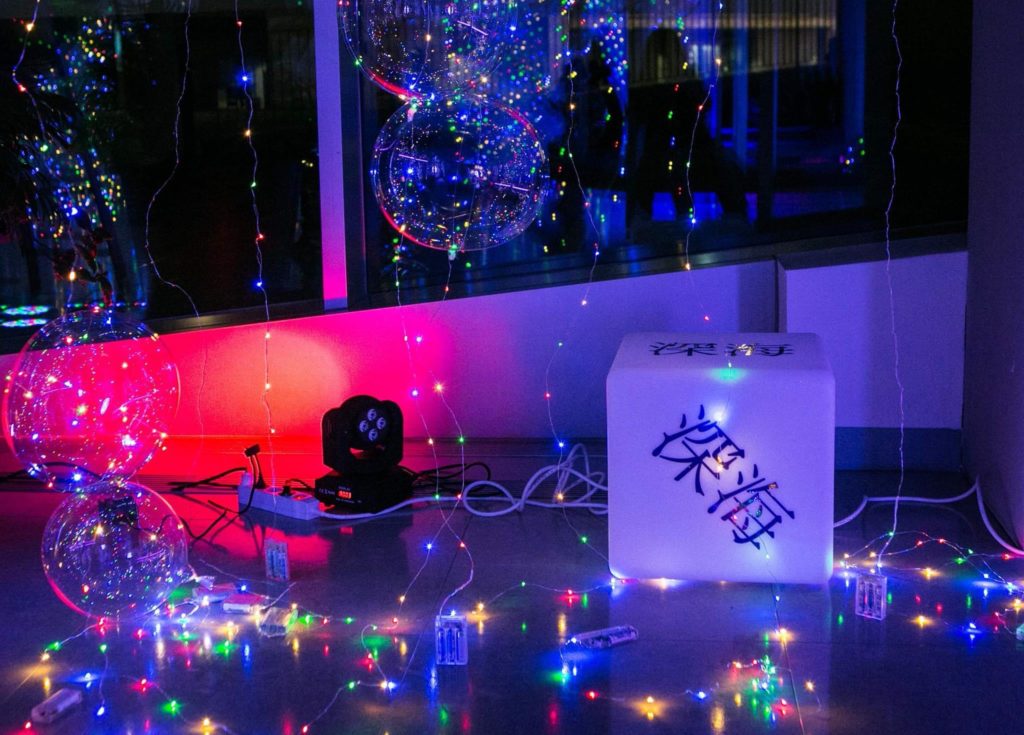
Colleagues who make Deep Ocean’s story continue:
Park Hyun (@promemoria._) DJ
A friend who plays driving techno. These days, she cannot come out because she is studying, but in 2017, we met through a DJ training program that we made, and we have been DJing together ever since.
Choi Young-won (@66choiyoungwon99) DJ, Bartender
A friend who attends GIST (Gwangju Institute of Science and Technology), an average graduate student during weekdays and a bartender during weekends, he plays techno and EBM genres and we DJ together every week.
Seo Jiae (@4040404_l) DJ, Bartender
She broadcasts live on Twitch and DJs for the trance and hardcore genres. With the game DJing Party, she created a party where ravers gather from all over the country and make songs. We make cocktails together on the weekend.
One last word…
We changed the name of our venue from “Deep Sea Lab” to “Deep Ocean Gwangju”! (@deepocean_gwangju) Please follow us, come over, have a drink, chat, and laugh together. Note that Friday is for “Red Ocean” (hip-hop) and Saturday is for “Blue Ocean” (techno / house).
Footnote
1 SoundCloud is an online audio distribution platform and music sharing website that enables its users to upload, promote, and share audio, as well as a digital signal processor enabling listeners to stream audio. (Wikipedia)
Photographs courtesy of Deep Ocean.
DEEP OCEAN (심해)
- Address: 2F, 34-6 Seoseok-ro, Dong-gu, Gwangju 광주 동구 서석로 34-6번길 2층
- Operating Hours: Fridays & Saturdays, 9 p.m. until late.
- Instagram: @deepocean_gwangju / @deepocean_official_
- Phone: 010-5947-8907
The Author
Melline Galani is a Romanian enthusiast, born and raised in the capital city of Bucharest, and currently living in Gwangju. She likes new challenges, learning interesting things, and is incurably optimistic. She loves living life as it is. Her favorite music place is Deep Ocean, the heart of house, EDM, and club music in the City of Light. This picture is taken outside of Deep Ocean with @oxydoomer. Instagram: @melligalanis



